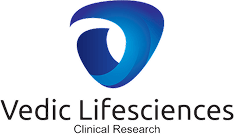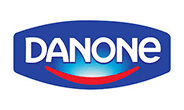Your Innovation &
Evidence Partner
Your Innovation &
Evidence Partner
Your Innovation &
Evidence Partner
From Clinical Outcomes to Market Leadership
Get in Touch
We make your proof powerful, compliant
and market-ready.
We make your proof powerful, compliant
and market-ready.
We make your proof powerful, compliant
and market-ready.
Explore Our Capabilities
For over 25 years, Vedic Lifesciences has been at the forefront of clinical research, shaping how science translates into trust and growth. We don't just conduct studies — we create credibility that strengthens innovation, accelerates regulatory acceptance and positions brands for global success. With proven expertise and a commitment to results, we align innovation with validation, compliance with speed and clinical endpoints with real consumer relevance. Every project is built to deliver not only scientific rigor but also measurable impact. In a world where promises are plenty but proof is rare, the next generation of future-ready wellness leaders will rise on the strength of evidence that builds trust, drives growth and endures. Vedic Lifesciences stands not just as a research & regulatory services provider to execute this journey, but as an intellectual partner and thought leader guiding brands to lead the market with proof.
For over 25 years, Vedic Lifesciences has been at the forefront of clinical research, shaping how science translates into trust and growth. We don't just conduct studies — we create credibility that strengthens innovation, accelerates regulatory acceptance and positions brands for global success. With proven expertise and a commitment to results, we align innovation with validation, compliance with speed and clinical endpoints with real consumer relevance. Every project is built to deliver not only scientific rigor but also measurable impact. In a world where promises are plenty but proof is rare, the next generation of future-ready wellness leaders will rise on the strength of evidence that builds trust, drives growth and endures. Vedic Lifesciences stands not just as a research & regulatory services provider to execute this journey, but as an intellectual partner and thought leader guiding brands to lead the market with proof.
For over 25 years, Vedic Lifesciences has been at the forefront of clinical research, shaping how science translates into trust and growth. We don't just conduct studies — we create credibility that strengthens innovation, accelerates regulatory acceptance and positions brands for global success. With proven expertise and a commitment to results, we align innovation with validation, compliance with speed and clinical endpoints with real consumer relevance. Every project is built to deliver not only scientific rigor but also measurable impact. In a world where promises are plenty but proof is rare, the next generation of future-ready wellness leaders will rise on the strength of evidence that builds trust, drives growth and endures. Vedic Lifesciences stands not just as a research & regulatory services provider to execute this journey, but as an intellectual partner and thought leader guiding brands to lead the market with proof.
For over 25 years, Vedic Lifesciences has been at the forefront of clinical research, shaping how science translates into trust and growth. We don't just conduct studies — we create credibility that strengthens innovation, accelerates regulatory acceptance and positions brands for global success. With proven expertise and a commitment to results, we align innovation with validation, compliance with speed and clinical endpoints with real consumer relevance. Every project is built to deliver not only scientific rigor but also measurable impact. In a world where promises are plenty but proof is rare, the next generation of future-ready wellness leaders will rise on the strength of evidence that builds trust, drives growth and endures. Vedic Lifesciences stands not just as a research & regulatory services provider to execute this journey, but as an intellectual partner and thought leader guiding brands to lead the market with proof.
Key Highlights
Key Highlights
Key Highlights
Scientific Design Excellence
Scientific Design Excellence
Scientific Design Excellence
Custom clinical trial architecture across multiple health domains, powered by deep scientific acumen and adaptive design.

Regulatory & Claims Strategy
Regulatory & Claims Strategy
Regulatory & Claims Strategy
Studies designed with regulatory foresight for globally compliant, market-usable product claims.

Speed. Flexibility. Clarity.
Accelerated project start-up, transparent communication, and agile execution from concept to completion.

Speed. Flexibility. Clarity.
Speed. Flexibility. Clarity.

Scientific
Design Excellence
Custom clinical trial architecture across multiple health domains, powered by deep scientific acumen and adaptive design.


Regulatory &
Claims Strategy
Studies designed with regulatory foresight for globally compliant, market-usable product claims.


Speed.
Flexibility.
Clarity.
Accelerated project start-up, transparent communication, and agile execution from concept to completion.

Our Category Portfolio
Our Category Portfolio
Our Category Portfolio
Vedic Lifesciences supports human trials and claim validation across a
full range of categories.
Vedic Lifesciences supports human trials and claim validation across a
full range of categories.
Consumer Health Products & OTCs
Vitamins, Minerals, Supplements, & Ingredients
Medical Foods & Condition-Specific Nutrition
Beauty-from-Within, Personal care & Cosmoceuticals
Medical Devices & Wearables
Consumer Health Products & OTCs
Infant Nutrition
Clinical Nutrition
Borderline products & novel therapies
Vitamins, Minerals, Supplements, & Ingredients
Medical Foods & Condition-Specific Nutrition
Beauty-from-Within, Personal care & Cosmoceuticals
Medical Devices & Wearables
Infant Nutrition
Clinical Nutrition
Borderline products & novel therapies
Mainstream & complementary medicines
Pet Health Products
The Vedic Difference
The Vedic Difference
The Vedic Difference
Innovation. Validation. Regulation - Seamlessly Integrated.
Innovation. Validation. Regulation - Seamlessly Integrated.
We partner with you to co-create innovation from concept to global regulatory approval. Our blend of scientific rigor, claims foresight and executional speed makes us a trusted ally for all healthcare innovators.
We partner with you to co-create innovation from concept to global regulatory approval. Our blend of scientific rigor, claims foresight and executional speed makes us a trusted ally for all healthcare innovators.
See How We Partner with Innovators
See How We Partner with Innovators

Trusted by Global Leaders
Trusted by Global Leaders
Trusted by Global Leaders
Success Stories
That Speak Science
Success Stories
That Speak Science
Success Stories
That Speak Science
A leading ingredient manufacturer, USA
Vedic Lifesciences has been a pleasure to work with. They have shown themselves to be professionals in the research arena… staff help make visiting the research site efficient and enjoyable.

A Global Biosolutions Provider on a large sample size study
Vedic Lifesciences has a highly qualified team and a passion for IBS and probiotics as a category. Thus they were the most apt CRO to conduct our IBS study.

A Nutra Award judge, speaker & influencer
Vedic is a CRO I trust because of their experience, professionalism, expertise and quality. Been their customer for 12 years and for numerous studies. One of the few that follow GCP, they offer sound advice, deliver professional reports and clearly communicate progress and timelines

An American Branded Ingredient Company, Austin, Texas
For studies on our Mediator®, we turned to the world experts – Vedic Lifesciences. They met our budgets and timelines and were outstanding in communication and reports. I highly recommend Vedic, they will meet and exceed your expectations too.

Chief Scientific Officer, An American monk-fruit leader
We’re excited to be initiating another study with Vedic. We do feel doing trials of this scale is unique and adds a great deal of value to our products. I’ve appreciated greatly that your group is familiar with herbs and has been extremely helpful with designing studies…. Your service has been wonderful; I have no suggestions. The team is great with communication, especially considering the time differences. If there’s any confusion, they’re happy to jump on a call often at times that I’m sure are stretching their work day.

CEO of 40 year old South Korean post biotic company
In our recent clinical study conducted in collaboration with Global CRO leader Vedic Lifesciences, we studied our core postbiotic strains, which showed significant benefits in improving gut health for individuals with obesity and overweight conditions. Despite the low doses of just 4mg and 10mg, respectively, we observed meaningful improvements in gastrointestinal symptoms, reductions in perceived stress, and restoration of gut microbiota balance. The partnership with the Vedic team has been instrumental in achieving these clinically relevant outcomes. We sincerely appreciate their expertise and dedication throughout this process. Moving forward, we look forward to strengthening our collaboration and conducting many more clinical studies aimed at addressing obesity and a wide range of other health challenges. Building on over 40+ years of experience in highly concentrated postbiotic research and human clinical data, our company remains committed to developing innovative health solutions and growing as a global leader in the postbiotics field.

Large Australian Innovator Company (both preclinical & clinical study – men’s health)
I am very happy how the study went so far. All Vedic members have been very responsive; this started with the beginning of the design phase throughout the project. Timelines have been adhered to well. We are in the final stages of the project with the results being shaped into a manuscript for publication. Dr. Shubhangi and team have done an excellent job and have been very accommodating to our comments and suggestions. Clinical trials are tricky due to their nature; we had a 3-month-trial… in 2 arms and adherence has been excellent with minimal attrition which was very good. Overall, everything went very well.

A leading ingredient manufacturer, USA
Vedic Lifesciences has been a pleasure to work with. They have shown themselves to be professionals in the research arena… staff help make visiting the research site efficient and enjoyable.

A Global Biosolutions Provider on a large sample size study
Vedic Lifesciences has a highly qualified team and a passion for IBS and probiotics as a category. Thus they were the most apt CRO to conduct our IBS study.

A Nutra Award judge, speaker & influencer
Vedic is a CRO I trust because of their experience, professionalism, expertise and quality. Been their customer for 12 years and for numerous studies. One of the few that follow GCP, they offer sound advice, deliver professional reports and clearly communicate progress and timelines

An American Branded Ingredient Company, Austin, Texas
For studies on our Mediator®, we turned to the world experts – Vedic Lifesciences. They met our budgets and timelines and were outstanding in communication and reports. I highly recommend Vedic, they will meet and exceed your expectations too.

Chief Scientific Officer, An American monk-fruit leader
We’re excited to be initiating another study with Vedic. We do feel doing trials of this scale is unique and adds a great deal of value to our products. I’ve appreciated greatly that your group is familiar with herbs and has been extremely helpful with designing studies…. Your service has been wonderful; I have no suggestions. The team is great with communication, especially considering the time differences. If there’s any confusion, they’re happy to jump on a call often at times that I’m sure are stretching their work day.

CEO of 40 year old South Korean post biotic company
In our recent clinical study conducted in collaboration with Global CRO leader Vedic Lifesciences, we studied our core postbiotic strains, which showed significant benefits in improving gut health for individuals with obesity and overweight conditions. Despite the low doses of just 4mg and 10mg, respectively, we observed meaningful improvements in gastrointestinal symptoms, reductions in perceived stress, and restoration of gut microbiota balance. The partnership with the Vedic team has been instrumental in achieving these clinically relevant outcomes. We sincerely appreciate their expertise and dedication throughout this process. Moving forward, we look forward to strengthening our collaboration and conducting many more clinical studies aimed at addressing obesity and a wide range of other health challenges. Building on over 40+ years of experience in highly concentrated postbiotic research and human clinical data, our company remains committed to developing innovative health solutions and growing as a global leader in the postbiotics field.

Large Australian Innovator Company (both preclinical & clinical study – men’s health)
I am very happy how the study went so far. All Vedic members have been very responsive; this started with the beginning of the design phase throughout the project. Timelines have been adhered to well. We are in the final stages of the project with the results being shaped into a manuscript for publication. Dr. Shubhangi and team have done an excellent job and have been very accommodating to our comments and suggestions. Clinical trials are tricky due to their nature; we had a 3-month-trial… in 2 arms and adherence has been excellent with minimal attrition which was very good. Overall, everything went very well.

A leading ingredient manufacturer, USA
Vedic Lifesciences has been a pleasure to work with. They have shown themselves to be professionals in the research arena… staff help make visiting the research site efficient and enjoyable.

A Global Biosolutions Provider on a large sample size study
Vedic Lifesciences has a highly qualified team and a passion for IBS and probiotics as a category. Thus they were the most apt CRO to conduct our IBS study.

A Nutra Award judge, speaker & influencer
Vedic is a CRO I trust because of their experience, professionalism, expertise and quality. Been their customer for 12 years and for numerous studies. One of the few that follow GCP, they offer sound advice, deliver professional reports and clearly communicate progress and timelines

An American Branded Ingredient Company, Austin, Texas
For studies on our Mediator®, we turned to the world experts – Vedic Lifesciences. They met our budgets and timelines and were outstanding in communication and reports. I highly recommend Vedic, they will meet and exceed your expectations too.

Chief Scientific Officer, An American monk-fruit leader
We’re excited to be initiating another study with Vedic. We do feel doing trials of this scale is unique and adds a great deal of value to our products. I’ve appreciated greatly that your group is familiar with herbs and has been extremely helpful with designing studies…. Your service has been wonderful; I have no suggestions. The team is great with communication, especially considering the time differences. If there’s any confusion, they’re happy to jump on a call often at times that I’m sure are stretching their work day.

CEO of 40 year old South Korean post biotic company
In our recent clinical study conducted in collaboration with Global CRO leader Vedic Lifesciences, we studied our core postbiotic strains, which showed significant benefits in improving gut health for individuals with obesity and overweight conditions. Despite the low doses of just 4mg and 10mg, respectively, we observed meaningful improvements in gastrointestinal symptoms, reductions in perceived stress, and restoration of gut microbiota balance. The partnership with the Vedic team has been instrumental in achieving these clinically relevant outcomes. We sincerely appreciate their expertise and dedication throughout this process. Moving forward, we look forward to strengthening our collaboration and conducting many more clinical studies aimed at addressing obesity and a wide range of other health challenges. Building on over 40+ years of experience in highly concentrated postbiotic research and human clinical data, our company remains committed to developing innovative health solutions and growing as a global leader in the postbiotics field.

Large Australian Innovator Company (both preclinical & clinical study – men’s health)
I am very happy how the study went so far. All Vedic members have been very responsive; this started with the beginning of the design phase throughout the project. Timelines have been adhered to well. We are in the final stages of the project with the results being shaped into a manuscript for publication. Dr. Shubhangi and team have done an excellent job and have been very accommodating to our comments and suggestions. Clinical trials are tricky due to their nature; we had a 3-month-trial… in 2 arms and adherence has been excellent with minimal attrition which was very good. Overall, everything went very well.

A leading ingredient manufacturer, USA
Vedic Lifesciences has been a pleasure to work with. They have shown themselves to be professionals in the research arena… staff help make visiting the research site efficient and enjoyable.

A Global Biosolutions Provider on a large sample size study
Vedic Lifesciences has a highly qualified team and a passion for IBS and probiotics as a category. Thus they were the most apt CRO to conduct our IBS study.

A Nutra Award judge, speaker & influencer
Vedic is a CRO I trust because of their experience, professionalism, expertise and quality. Been their customer for 12 years and for numerous studies. One of the few that follow GCP, they offer sound advice, deliver professional reports and clearly communicate progress and timelines

An American Branded Ingredient Company, Austin, Texas
For studies on our Mediator®, we turned to the world experts – Vedic Lifesciences. They met our budgets and timelines and were outstanding in communication and reports. I highly recommend Vedic, they will meet and exceed your expectations too.

Chief Scientific Officer, An American monk-fruit leader
We’re excited to be initiating another study with Vedic. We do feel doing trials of this scale is unique and adds a great deal of value to our products. I’ve appreciated greatly that your group is familiar with herbs and has been extremely helpful with designing studies…. Your service has been wonderful; I have no suggestions. The team is great with communication, especially considering the time differences. If there’s any confusion, they’re happy to jump on a call often at times that I’m sure are stretching their work day.

CEO of 40 year old South Korean post biotic company
In our recent clinical study conducted in collaboration with Global CRO leader Vedic Lifesciences, we studied our core postbiotic strains, which showed significant benefits in improving gut health for individuals with obesity and overweight conditions. Despite the low doses of just 4mg and 10mg, respectively, we observed meaningful improvements in gastrointestinal symptoms, reductions in perceived stress, and restoration of gut microbiota balance. The partnership with the Vedic team has been instrumental in achieving these clinically relevant outcomes. We sincerely appreciate their expertise and dedication throughout this process. Moving forward, we look forward to strengthening our collaboration and conducting many more clinical studies aimed at addressing obesity and a wide range of other health challenges. Building on over 40+ years of experience in highly concentrated postbiotic research and human clinical data, our company remains committed to developing innovative health solutions and growing as a global leader in the postbiotics field.

Large Australian Innovator Company (both preclinical & clinical study – men’s health)
I am very happy how the study went so far. All Vedic members have been very responsive; this started with the beginning of the design phase throughout the project. Timelines have been adhered to well. We are in the final stages of the project with the results being shaped into a manuscript for publication. Dr. Shubhangi and team have done an excellent job and have been very accommodating to our comments and suggestions. Clinical trials are tricky due to their nature; we had a 3-month-trial… in 2 arms and adherence has been excellent with minimal attrition which was very good. Overall, everything went very well.

A leading ingredient manufacturer, USA
Vedic Lifesciences has been a pleasure to work with. They have shown themselves to be professionals in the research arena… staff help make visiting the research site efficient and enjoyable.

A Global Biosolutions Provider on a large sample size study
Vedic Lifesciences has a highly qualified team and a passion for IBS and probiotics as a category. Thus they were the most apt CRO to conduct our IBS study.

A Nutra Award judge, speaker & influencer
Vedic is a CRO I trust because of their experience, professionalism, expertise and quality. Been their customer for 12 years and for numerous studies. One of the few that follow GCP, they offer sound advice, deliver professional reports and clearly communicate progress and timelines

An American Branded Ingredient Company, Austin, Texas
For studies on our Mediator®, we turned to the world experts – Vedic Lifesciences. They met our budgets and timelines and were outstanding in communication and reports. I highly recommend Vedic, they will meet and exceed your expectations too.

Chief Scientific Officer, An American monk-fruit leader
We’re excited to be initiating another study with Vedic. We do feel doing trials of this scale is unique and adds a great deal of value to our products. I’ve appreciated greatly that your group is familiar with herbs and has been extremely helpful with designing studies…. Your service has been wonderful; I have no suggestions. The team is great with communication, especially considering the time differences. If there’s any confusion, they’re happy to jump on a call often at times that I’m sure are stretching their work day.

CEO of 40 year old South Korean post biotic company
In our recent clinical study conducted in collaboration with Global CRO leader Vedic Lifesciences, we studied our core postbiotic strains, which showed significant benefits in improving gut health for individuals with obesity and overweight conditions. Despite the low doses of just 4mg and 10mg, respectively, we observed meaningful improvements in gastrointestinal symptoms, reductions in perceived stress, and restoration of gut microbiota balance. The partnership with the Vedic team has been instrumental in achieving these clinically relevant outcomes. We sincerely appreciate their expertise and dedication throughout this process. Moving forward, we look forward to strengthening our collaboration and conducting many more clinical studies aimed at addressing obesity and a wide range of other health challenges. Building on over 40+ years of experience in highly concentrated postbiotic research and human clinical data, our company remains committed to developing innovative health solutions and growing as a global leader in the postbiotics field.

Large Australian Innovator Company (both preclinical & clinical study – men’s health)
I am very happy how the study went so far. All Vedic members have been very responsive; this started with the beginning of the design phase throughout the project. Timelines have been adhered to well. We are in the final stages of the project with the results being shaped into a manuscript for publication. Dr. Shubhangi and team have done an excellent job and have been very accommodating to our comments and suggestions. Clinical trials are tricky due to their nature; we had a 3-month-trial… in 2 arms and adherence has been excellent with minimal attrition which was very good. Overall, everything went very well.

A leading ingredient manufacturer, USA
Vedic Lifesciences has been a pleasure to work with. They have shown themselves to be professionals in the research arena… staff help make visiting the research site efficient and enjoyable.

A Global Biosolutions Provider on a large sample size study
Vedic Lifesciences has a highly qualified team and a passion for IBS and probiotics as a category. Thus they were the most apt CRO to conduct our IBS study.

A Nutra Award judge, speaker & influencer
Vedic is a CRO I trust because of their experience, professionalism, expertise and quality. Been their customer for 12 years and for numerous studies. One of the few that follow GCP, they offer sound advice, deliver professional reports and clearly communicate progress and timelines

An American Branded Ingredient Company, Austin, Texas
For studies on our Mediator®, we turned to the world experts – Vedic Lifesciences. They met our budgets and timelines and were outstanding in communication and reports. I highly recommend Vedic, they will meet and exceed your expectations too.

Chief Scientific Officer, An American monk-fruit leader
We’re excited to be initiating another study with Vedic. We do feel doing trials of this scale is unique and adds a great deal of value to our products. I’ve appreciated greatly that your group is familiar with herbs and has been extremely helpful with designing studies…. Your service has been wonderful; I have no suggestions. The team is great with communication, especially considering the time differences. If there’s any confusion, they’re happy to jump on a call often at times that I’m sure are stretching their work day.

CEO of 40 year old South Korean post biotic company
In our recent clinical study conducted in collaboration with Global CRO leader Vedic Lifesciences, we studied our core postbiotic strains, which showed significant benefits in improving gut health for individuals with obesity and overweight conditions. Despite the low doses of just 4mg and 10mg, respectively, we observed meaningful improvements in gastrointestinal symptoms, reductions in perceived stress, and restoration of gut microbiota balance. The partnership with the Vedic team has been instrumental in achieving these clinically relevant outcomes. We sincerely appreciate their expertise and dedication throughout this process. Moving forward, we look forward to strengthening our collaboration and conducting many more clinical studies aimed at addressing obesity and a wide range of other health challenges. Building on over 40+ years of experience in highly concentrated postbiotic research and human clinical data, our company remains committed to developing innovative health solutions and growing as a global leader in the postbiotics field.

Large Australian Innovator Company (both preclinical & clinical study – men’s health)
I am very happy how the study went so far. All Vedic members have been very responsive; this started with the beginning of the design phase throughout the project. Timelines have been adhered to well. We are in the final stages of the project with the results being shaped into a manuscript for publication. Dr. Shubhangi and team have done an excellent job and have been very accommodating to our comments and suggestions. Clinical trials are tricky due to their nature; we had a 3-month-trial… in 2 arms and adherence has been excellent with minimal attrition which was very good. Overall, everything went very well.

A leading ingredient manufacturer, USA
Vedic Lifesciences has been a pleasure to work with. They have shown themselves to be professionals in the research arena… staff help make visiting the research site efficient and enjoyable.

A Global Biosolutions Provider on a large sample size study
Vedic Lifesciences has a highly qualified team and a passion for IBS and probiotics as a category. Thus they were the most apt CRO to conduct our IBS study.

A Nutra Award judge, speaker & influencer
Vedic is a CRO I trust because of their experience, professionalism, expertise and quality. Been their customer for 12 years and for numerous studies. One of the few that follow GCP, they offer sound advice, deliver professional reports and clearly communicate progress and timelines

An American Branded Ingredient Company, Austin, Texas
For studies on our Mediator®, we turned to the world experts – Vedic Lifesciences. They met our budgets and timelines and were outstanding in communication and reports. I highly recommend Vedic, they will meet and exceed your expectations too.

Chief Scientific Officer, An American monk-fruit leader
We’re excited to be initiating another study with Vedic. We do feel doing trials of this scale is unique and adds a great deal of value to our products. I’ve appreciated greatly that your group is familiar with herbs and has been extremely helpful with designing studies…. Your service has been wonderful; I have no suggestions. The team is great with communication, especially considering the time differences. If there’s any confusion, they’re happy to jump on a call often at times that I’m sure are stretching their work day.

CEO of 40 year old South Korean post biotic company
In our recent clinical study conducted in collaboration with Global CRO leader Vedic Lifesciences, we studied our core postbiotic strains, which showed significant benefits in improving gut health for individuals with obesity and overweight conditions. Despite the low doses of just 4mg and 10mg, respectively, we observed meaningful improvements in gastrointestinal symptoms, reductions in perceived stress, and restoration of gut microbiota balance. The partnership with the Vedic team has been instrumental in achieving these clinically relevant outcomes. We sincerely appreciate their expertise and dedication throughout this process. Moving forward, we look forward to strengthening our collaboration and conducting many more clinical studies aimed at addressing obesity and a wide range of other health challenges. Building on over 40+ years of experience in highly concentrated postbiotic research and human clinical data, our company remains committed to developing innovative health solutions and growing as a global leader in the postbiotics field.

Large Australian Innovator Company (both preclinical & clinical study – men’s health)
I am very happy how the study went so far. All Vedic members have been very responsive; this started with the beginning of the design phase throughout the project. Timelines have been adhered to well. We are in the final stages of the project with the results being shaped into a manuscript for publication. Dr. Shubhangi and team have done an excellent job and have been very accommodating to our comments and suggestions. Clinical trials are tricky due to their nature; we had a 3-month-trial… in 2 arms and adherence has been excellent with minimal attrition which was very good. Overall, everything went very well.

A leading ingredient manufacturer, USA
Vedic Lifesciences has been a pleasure to work with. They have shown themselves to be professionals in the research arena… staff help make visiting the research site efficient and enjoyable.

A Global Biosolutions Provider on a large sample size study
Vedic Lifesciences has a highly qualified team and a passion for IBS and probiotics as a category. Thus they were the most apt CRO to conduct our IBS study.

A Nutra Award judge, speaker & influencer
Vedic is a CRO I trust because of their experience, professionalism, expertise and quality. Been their customer for 12 years and for numerous studies. One of the few that follow GCP, they offer sound advice, deliver professional reports and clearly communicate progress and timelines

An American Branded Ingredient Company, Austin, Texas
For studies on our Mediator®, we turned to the world experts – Vedic Lifesciences. They met our budgets and timelines and were outstanding in communication and reports. I highly recommend Vedic, they will meet and exceed your expectations too.

Chief Scientific Officer, An American monk-fruit leader
We’re excited to be initiating another study with Vedic. We do feel doing trials of this scale is unique and adds a great deal of value to our products. I’ve appreciated greatly that your group is familiar with herbs and has been extremely helpful with designing studies…. Your service has been wonderful; I have no suggestions. The team is great with communication, especially considering the time differences. If there’s any confusion, they’re happy to jump on a call often at times that I’m sure are stretching their work day.

CEO of 40 year old South Korean post biotic company
In our recent clinical study conducted in collaboration with Global CRO leader Vedic Lifesciences, we studied our core postbiotic strains, which showed significant benefits in improving gut health for individuals with obesity and overweight conditions. Despite the low doses of just 4mg and 10mg, respectively, we observed meaningful improvements in gastrointestinal symptoms, reductions in perceived stress, and restoration of gut microbiota balance. The partnership with the Vedic team has been instrumental in achieving these clinically relevant outcomes. We sincerely appreciate their expertise and dedication throughout this process. Moving forward, we look forward to strengthening our collaboration and conducting many more clinical studies aimed at addressing obesity and a wide range of other health challenges. Building on over 40+ years of experience in highly concentrated postbiotic research and human clinical data, our company remains committed to developing innovative health solutions and growing as a global leader in the postbiotics field.

Large Australian Innovator Company (both preclinical & clinical study – men’s health)
I am very happy how the study went so far. All Vedic members have been very responsive; this started with the beginning of the design phase throughout the project. Timelines have been adhered to well. We are in the final stages of the project with the results being shaped into a manuscript for publication. Dr. Shubhangi and team have done an excellent job and have been very accommodating to our comments and suggestions. Clinical trials are tricky due to their nature; we had a 3-month-trial… in 2 arms and adherence has been excellent with minimal attrition which was very good. Overall, everything went very well.

A leading ingredient manufacturer, USA
Vedic Lifesciences has been a pleasure to work with. They have shown themselves to be professionals in the research arena… staff help make visiting the research site efficient and enjoyable.

A Global Biosolutions Provider on a large sample size study
Vedic Lifesciences has a highly qualified team and a passion for IBS and probiotics as a category. Thus they were the most apt CRO to conduct our IBS study.

A Nutra Award judge, speaker & influencer
Vedic is a CRO I trust because of their experience, professionalism, expertise and quality. Been their customer for 12 years and for numerous studies. One of the few that follow GCP, they offer sound advice, deliver professional reports and clearly communicate progress and timelines

An American Branded Ingredient Company, Austin, Texas
For studies on our Mediator®, we turned to the world experts – Vedic Lifesciences. They met our budgets and timelines and were outstanding in communication and reports. I highly recommend Vedic, they will meet and exceed your expectations too.

Chief Scientific Officer, An American monk-fruit leader
We’re excited to be initiating another study with Vedic. We do feel doing trials of this scale is unique and adds a great deal of value to our products. I’ve appreciated greatly that your group is familiar with herbs and has been extremely helpful with designing studies…. Your service has been wonderful; I have no suggestions. The team is great with communication, especially considering the time differences. If there’s any confusion, they’re happy to jump on a call often at times that I’m sure are stretching their work day.

CEO of 40 year old South Korean post biotic company
In our recent clinical study conducted in collaboration with Global CRO leader Vedic Lifesciences, we studied our core postbiotic strains, which showed significant benefits in improving gut health for individuals with obesity and overweight conditions. Despite the low doses of just 4mg and 10mg, respectively, we observed meaningful improvements in gastrointestinal symptoms, reductions in perceived stress, and restoration of gut microbiota balance. The partnership with the Vedic team has been instrumental in achieving these clinically relevant outcomes. We sincerely appreciate their expertise and dedication throughout this process. Moving forward, we look forward to strengthening our collaboration and conducting many more clinical studies aimed at addressing obesity and a wide range of other health challenges. Building on over 40+ years of experience in highly concentrated postbiotic research and human clinical data, our company remains committed to developing innovative health solutions and growing as a global leader in the postbiotics field.

Large Australian Innovator Company (both preclinical & clinical study – men’s health)
I am very happy how the study went so far. All Vedic members have been very responsive; this started with the beginning of the design phase throughout the project. Timelines have been adhered to well. We are in the final stages of the project with the results being shaped into a manuscript for publication. Dr. Shubhangi and team have done an excellent job and have been very accommodating to our comments and suggestions. Clinical trials are tricky due to their nature; we had a 3-month-trial… in 2 arms and adherence has been excellent with minimal attrition which was very good. Overall, everything went very well.

A leading ingredient manufacturer, USA
Vedic Lifesciences has been a pleasure to work with. They have shown themselves to be professionals in the research arena… staff help make visiting the research site efficient and enjoyable.

A Global Biosolutions Provider on a large sample size study
Vedic Lifesciences has a highly qualified team and a passion for IBS and probiotics as a category. Thus they were the most apt CRO to conduct our IBS study.

A Nutra Award judge, speaker & influencer
Vedic is a CRO I trust because of their experience, professionalism, expertise and quality. Been their customer for 12 years and for numerous studies. One of the few that follow GCP, they offer sound advice, deliver professional reports and clearly communicate progress and timelines

An American Branded Ingredient Company, Austin, Texas
For studies on our Mediator®, we turned to the world experts – Vedic Lifesciences. They met our budgets and timelines and were outstanding in communication and reports. I highly recommend Vedic, they will meet and exceed your expectations too.

Chief Scientific Officer, An American monk-fruit leader
We’re excited to be initiating another study with Vedic. We do feel doing trials of this scale is unique and adds a great deal of value to our products. I’ve appreciated greatly that your group is familiar with herbs and has been extremely helpful with designing studies…. Your service has been wonderful; I have no suggestions. The team is great with communication, especially considering the time differences. If there’s any confusion, they’re happy to jump on a call often at times that I’m sure are stretching their work day.

CEO of 40 year old South Korean post biotic company
In our recent clinical study conducted in collaboration with Global CRO leader Vedic Lifesciences, we studied our core postbiotic strains, which showed significant benefits in improving gut health for individuals with obesity and overweight conditions. Despite the low doses of just 4mg and 10mg, respectively, we observed meaningful improvements in gastrointestinal symptoms, reductions in perceived stress, and restoration of gut microbiota balance. The partnership with the Vedic team has been instrumental in achieving these clinically relevant outcomes. We sincerely appreciate their expertise and dedication throughout this process. Moving forward, we look forward to strengthening our collaboration and conducting many more clinical studies aimed at addressing obesity and a wide range of other health challenges. Building on over 40+ years of experience in highly concentrated postbiotic research and human clinical data, our company remains committed to developing innovative health solutions and growing as a global leader in the postbiotics field.

Large Australian Innovator Company (both preclinical & clinical study – men’s health)
I am very happy how the study went so far. All Vedic members have been very responsive; this started with the beginning of the design phase throughout the project. Timelines have been adhered to well. We are in the final stages of the project with the results being shaped into a manuscript for publication. Dr. Shubhangi and team have done an excellent job and have been very accommodating to our comments and suggestions. Clinical trials are tricky due to their nature; we had a 3-month-trial… in 2 arms and adherence has been excellent with minimal attrition which was very good. Overall, everything went very well.

A leading ingredient manufacturer, USA
Vedic Lifesciences has been a pleasure to work with. They have shown themselves to be professionals in the research arena… staff help make visiting the research site efficient and enjoyable.

A Global Biosolutions Provider on a large sample size study
Vedic Lifesciences has a highly qualified team and a passion for IBS and probiotics as a category. Thus they were the most apt CRO to conduct our IBS study.

A Nutra Award judge, speaker & influencer
Vedic is a CRO I trust because of their experience, professionalism, expertise and quality. Been their customer for 12 years and for numerous studies. One of the few that follow GCP, they offer sound advice, deliver professional reports and clearly communicate progress and timelines

An American Branded Ingredient Company, Austin, Texas
For studies on our Mediator®, we turned to the world experts – Vedic Lifesciences. They met our budgets and timelines and were outstanding in communication and reports. I highly recommend Vedic, they will meet and exceed your expectations too.

Chief Scientific Officer, An American monk-fruit leader
We’re excited to be initiating another study with Vedic. We do feel doing trials of this scale is unique and adds a great deal of value to our products. I’ve appreciated greatly that your group is familiar with herbs and has been extremely helpful with designing studies…. Your service has been wonderful; I have no suggestions. The team is great with communication, especially considering the time differences. If there’s any confusion, they’re happy to jump on a call often at times that I’m sure are stretching their work day.

CEO of 40 year old South Korean post biotic company
In our recent clinical study conducted in collaboration with Global CRO leader Vedic Lifesciences, we studied our core postbiotic strains, which showed significant benefits in improving gut health for individuals with obesity and overweight conditions. Despite the low doses of just 4mg and 10mg, respectively, we observed meaningful improvements in gastrointestinal symptoms, reductions in perceived stress, and restoration of gut microbiota balance. The partnership with the Vedic team has been instrumental in achieving these clinically relevant outcomes. We sincerely appreciate their expertise and dedication throughout this process. Moving forward, we look forward to strengthening our collaboration and conducting many more clinical studies aimed at addressing obesity and a wide range of other health challenges. Building on over 40+ years of experience in highly concentrated postbiotic research and human clinical data, our company remains committed to developing innovative health solutions and growing as a global leader in the postbiotics field.

Large Australian Innovator Company (both preclinical & clinical study – men’s health)
I am very happy how the study went so far. All Vedic members have been very responsive; this started with the beginning of the design phase throughout the project. Timelines have been adhered to well. We are in the final stages of the project with the results being shaped into a manuscript for publication. Dr. Shubhangi and team have done an excellent job and have been very accommodating to our comments and suggestions. Clinical trials are tricky due to their nature; we had a 3-month-trial… in 2 arms and adherence has been excellent with minimal attrition which was very good. Overall, everything went very well.

A leading ingredient manufacturer, USA
Vedic Lifesciences has been a pleasure to work with. They have shown themselves to be professionals in the research arena… staff help make visiting the research site efficient and enjoyable.

A Global Biosolutions Provider on a large sample size study
Vedic Lifesciences has a highly qualified team and a passion for IBS and probiotics as a category. Thus they were the most apt CRO to conduct our IBS study.

A Nutra Award judge, speaker & influencer
Vedic is a CRO I trust because of their experience, professionalism, expertise and quality. Been their customer for 12 years and for numerous studies. One of the few that follow GCP, they offer sound advice, deliver professional reports and clearly communicate progress and timelines

An American Branded Ingredient Company, Austin, Texas
For studies on our Mediator®, we turned to the world experts – Vedic Lifesciences. They met our budgets and timelines and were outstanding in communication and reports. I highly recommend Vedic, they will meet and exceed your expectations too.

Chief Scientific Officer, An American monk-fruit leader
We’re excited to be initiating another study with Vedic. We do feel doing trials of this scale is unique and adds a great deal of value to our products. I’ve appreciated greatly that your group is familiar with herbs and has been extremely helpful with designing studies…. Your service has been wonderful; I have no suggestions. The team is great with communication, especially considering the time differences. If there’s any confusion, they’re happy to jump on a call often at times that I’m sure are stretching their work day.

CEO of 40 year old South Korean post biotic company
In our recent clinical study conducted in collaboration with Global CRO leader Vedic Lifesciences, we studied our core postbiotic strains, which showed significant benefits in improving gut health for individuals with obesity and overweight conditions. Despite the low doses of just 4mg and 10mg, respectively, we observed meaningful improvements in gastrointestinal symptoms, reductions in perceived stress, and restoration of gut microbiota balance. The partnership with the Vedic team has been instrumental in achieving these clinically relevant outcomes. We sincerely appreciate their expertise and dedication throughout this process. Moving forward, we look forward to strengthening our collaboration and conducting many more clinical studies aimed at addressing obesity and a wide range of other health challenges. Building on over 40+ years of experience in highly concentrated postbiotic research and human clinical data, our company remains committed to developing innovative health solutions and growing as a global leader in the postbiotics field.

Large Australian Innovator Company (both preclinical & clinical study – men’s health)
I am very happy how the study went so far. All Vedic members have been very responsive; this started with the beginning of the design phase throughout the project. Timelines have been adhered to well. We are in the final stages of the project with the results being shaped into a manuscript for publication. Dr. Shubhangi and team have done an excellent job and have been very accommodating to our comments and suggestions. Clinical trials are tricky due to their nature; we had a 3-month-trial… in 2 arms and adherence has been excellent with minimal attrition which was very good. Overall, everything went very well.

A leading ingredient manufacturer, USA
Vedic Lifesciences has been a pleasure to work with. They have shown themselves to be professionals in the research arena… staff help make visiting the research site efficient and enjoyable.

A Global Biosolutions Provider on a large sample size study
Vedic Lifesciences has a highly qualified team and a passion for IBS and probiotics as a category. Thus they were the most apt CRO to conduct our IBS study.

A Nutra Award judge, speaker & influencer
Vedic is a CRO I trust because of their experience, professionalism, expertise and quality. Been their customer for 12 years and for numerous studies. One of the few that follow GCP, they offer sound advice, deliver professional reports and clearly communicate progress and timelines

An American Branded Ingredient Company, Austin, Texas
For studies on our Mediator®, we turned to the world experts – Vedic Lifesciences. They met our budgets and timelines and were outstanding in communication and reports. I highly recommend Vedic, they will meet and exceed your expectations too.

Chief Scientific Officer, An American monk-fruit leader
We’re excited to be initiating another study with Vedic. We do feel doing trials of this scale is unique and adds a great deal of value to our products. I’ve appreciated greatly that your group is familiar with herbs and has been extremely helpful with designing studies…. Your service has been wonderful; I have no suggestions. The team is great with communication, especially considering the time differences. If there’s any confusion, they’re happy to jump on a call often at times that I’m sure are stretching their work day.

CEO of 40 year old South Korean post biotic company
In our recent clinical study conducted in collaboration with Global CRO leader Vedic Lifesciences, we studied our core postbiotic strains, which showed significant benefits in improving gut health for individuals with obesity and overweight conditions. Despite the low doses of just 4mg and 10mg, respectively, we observed meaningful improvements in gastrointestinal symptoms, reductions in perceived stress, and restoration of gut microbiota balance. The partnership with the Vedic team has been instrumental in achieving these clinically relevant outcomes. We sincerely appreciate their expertise and dedication throughout this process. Moving forward, we look forward to strengthening our collaboration and conducting many more clinical studies aimed at addressing obesity and a wide range of other health challenges. Building on over 40+ years of experience in highly concentrated postbiotic research and human clinical data, our company remains committed to developing innovative health solutions and growing as a global leader in the postbiotics field.

Large Australian Innovator Company (both preclinical & clinical study – men’s health)
I am very happy how the study went so far. All Vedic members have been very responsive; this started with the beginning of the design phase throughout the project. Timelines have been adhered to well. We are in the final stages of the project with the results being shaped into a manuscript for publication. Dr. Shubhangi and team have done an excellent job and have been very accommodating to our comments and suggestions. Clinical trials are tricky due to their nature; we had a 3-month-trial… in 2 arms and adherence has been excellent with minimal attrition which was very good. Overall, everything went very well.

A leading ingredient manufacturer, USA
Vedic Lifesciences has been a pleasure to work with. They have shown themselves to be professionals in the research arena… staff help make visiting the research site efficient and enjoyable.

A Global Biosolutions Provider on a large sample size study
Vedic Lifesciences has a highly qualified team and a passion for IBS and probiotics as a category. Thus they were the most apt CRO to conduct our IBS study.

A Nutra Award judge, speaker & influencer
Vedic is a CRO I trust because of their experience, professionalism, expertise and quality. Been their customer for 12 years and for numerous studies. One of the few that follow GCP, they offer sound advice, deliver professional reports and clearly communicate progress and timelines

An American Branded Ingredient Company, Austin, Texas
For studies on our Mediator®, we turned to the world experts – Vedic Lifesciences. They met our budgets and timelines and were outstanding in communication and reports. I highly recommend Vedic, they will meet and exceed your expectations too.

Chief Scientific Officer, An American monk-fruit leader
We’re excited to be initiating another study with Vedic. We do feel doing trials of this scale is unique and adds a great deal of value to our products. I’ve appreciated greatly that your group is familiar with herbs and has been extremely helpful with designing studies…. Your service has been wonderful; I have no suggestions. The team is great with communication, especially considering the time differences. If there’s any confusion, they’re happy to jump on a call often at times that I’m sure are stretching their work day.

CEO of 40 year old South Korean post biotic company
In our recent clinical study conducted in collaboration with Global CRO leader Vedic Lifesciences, we studied our core postbiotic strains, which showed significant benefits in improving gut health for individuals with obesity and overweight conditions. Despite the low doses of just 4mg and 10mg, respectively, we observed meaningful improvements in gastrointestinal symptoms, reductions in perceived stress, and restoration of gut microbiota balance. The partnership with the Vedic team has been instrumental in achieving these clinically relevant outcomes. We sincerely appreciate their expertise and dedication throughout this process. Moving forward, we look forward to strengthening our collaboration and conducting many more clinical studies aimed at addressing obesity and a wide range of other health challenges. Building on over 40+ years of experience in highly concentrated postbiotic research and human clinical data, our company remains committed to developing innovative health solutions and growing as a global leader in the postbiotics field.

Large Australian Innovator Company (both preclinical & clinical study – men’s health)
I am very happy how the study went so far. All Vedic members have been very responsive; this started with the beginning of the design phase throughout the project. Timelines have been adhered to well. We are in the final stages of the project with the results being shaped into a manuscript for publication. Dr. Shubhangi and team have done an excellent job and have been very accommodating to our comments and suggestions. Clinical trials are tricky due to their nature; we had a 3-month-trial… in 2 arms and adherence has been excellent with minimal attrition which was very good. Overall, everything went very well.

A leading ingredient manufacturer, USA
Vedic Lifesciences has been a pleasure to work with. They have shown themselves to be professionals in the research arena… staff help make visiting the research site efficient and enjoyable.

A Global Biosolutions Provider on a large sample size study
Vedic Lifesciences has a highly qualified team and a passion for IBS and probiotics as a category. Thus they were the most apt CRO to conduct our IBS study.

A Nutra Award judge, speaker & influencer
Vedic is a CRO I trust because of their experience, professionalism, expertise and quality. Been their customer for 12 years and for numerous studies. One of the few that follow GCP, they offer sound advice, deliver professional reports and clearly communicate progress and timelines

An American Branded Ingredient Company, Austin, Texas
For studies on our Mediator®, we turned to the world experts – Vedic Lifesciences. They met our budgets and timelines and were outstanding in communication and reports. I highly recommend Vedic, they will meet and exceed your expectations too.

Chief Scientific Officer, An American monk-fruit leader
We’re excited to be initiating another study with Vedic. We do feel doing trials of this scale is unique and adds a great deal of value to our products. I’ve appreciated greatly that your group is familiar with herbs and has been extremely helpful with designing studies…. Your service has been wonderful; I have no suggestions. The team is great with communication, especially considering the time differences. If there’s any confusion, they’re happy to jump on a call often at times that I’m sure are stretching their work day.

CEO of 40 year old South Korean post biotic company
In our recent clinical study conducted in collaboration with Global CRO leader Vedic Lifesciences, we studied our core postbiotic strains, which showed significant benefits in improving gut health for individuals with obesity and overweight conditions. Despite the low doses of just 4mg and 10mg, respectively, we observed meaningful improvements in gastrointestinal symptoms, reductions in perceived stress, and restoration of gut microbiota balance. The partnership with the Vedic team has been instrumental in achieving these clinically relevant outcomes. We sincerely appreciate their expertise and dedication throughout this process. Moving forward, we look forward to strengthening our collaboration and conducting many more clinical studies aimed at addressing obesity and a wide range of other health challenges. Building on over 40+ years of experience in highly concentrated postbiotic research and human clinical data, our company remains committed to developing innovative health solutions and growing as a global leader in the postbiotics field.

Large Australian Innovator Company (both preclinical & clinical study – men’s health)
I am very happy how the study went so far. All Vedic members have been very responsive; this started with the beginning of the design phase throughout the project. Timelines have been adhered to well. We are in the final stages of the project with the results being shaped into a manuscript for publication. Dr. Shubhangi and team have done an excellent job and have been very accommodating to our comments and suggestions. Clinical trials are tricky due to their nature; we had a 3-month-trial… in 2 arms and adherence has been excellent with minimal attrition which was very good. Overall, everything went very well.

A leading ingredient manufacturer, USA
Vedic Lifesciences has been a pleasure to work with. They have shown themselves to be professionals in the research arena… staff help make visiting the research site efficient and enjoyable.

A Global Biosolutions Provider on a large sample size study
Vedic Lifesciences has a highly qualified team and a passion for IBS and probiotics as a category. Thus they were the most apt CRO to conduct our IBS study.

A Nutra Award judge, speaker & influencer
Vedic is a CRO I trust because of their experience, professionalism, expertise and quality. Been their customer for 12 years and for numerous studies. One of the few that follow GCP, they offer sound advice, deliver professional reports and clearly communicate progress and timelines

An American Branded Ingredient Company, Austin, Texas
For studies on our Mediator®, we turned to the world experts – Vedic Lifesciences. They met our budgets and timelines and were outstanding in communication and reports. I highly recommend Vedic, they will meet and exceed your expectations too.

Chief Scientific Officer, An American monk-fruit leader
We’re excited to be initiating another study with Vedic. We do feel doing trials of this scale is unique and adds a great deal of value to our products. I’ve appreciated greatly that your group is familiar with herbs and has been extremely helpful with designing studies…. Your service has been wonderful; I have no suggestions. The team is great with communication, especially considering the time differences. If there’s any confusion, they’re happy to jump on a call often at times that I’m sure are stretching their work day.

CEO of 40 year old South Korean post biotic company
In our recent clinical study conducted in collaboration with Global CRO leader Vedic Lifesciences, we studied our core postbiotic strains, which showed significant benefits in improving gut health for individuals with obesity and overweight conditions. Despite the low doses of just 4mg and 10mg, respectively, we observed meaningful improvements in gastrointestinal symptoms, reductions in perceived stress, and restoration of gut microbiota balance. The partnership with the Vedic team has been instrumental in achieving these clinically relevant outcomes. We sincerely appreciate their expertise and dedication throughout this process. Moving forward, we look forward to strengthening our collaboration and conducting many more clinical studies aimed at addressing obesity and a wide range of other health challenges. Building on over 40+ years of experience in highly concentrated postbiotic research and human clinical data, our company remains committed to developing innovative health solutions and growing as a global leader in the postbiotics field.

Large Australian Innovator Company (both preclinical & clinical study – men’s health)
I am very happy how the study went so far. All Vedic members have been very responsive; this started with the beginning of the design phase throughout the project. Timelines have been adhered to well. We are in the final stages of the project with the results being shaped into a manuscript for publication. Dr. Shubhangi and team have done an excellent job and have been very accommodating to our comments and suggestions. Clinical trials are tricky due to their nature; we had a 3-month-trial… in 2 arms and adherence has been excellent with minimal attrition which was very good. Overall, everything went very well.

A leading ingredient manufacturer, USA
Vedic Lifesciences has been a pleasure to work with. They have shown themselves to be professionals in the research arena… staff help make visiting the research site efficient and enjoyable.

A Global Biosolutions Provider on a large sample size study
Vedic Lifesciences has a highly qualified team and a passion for IBS and probiotics as a category. Thus they were the most apt CRO to conduct our IBS study.

A Nutra Award judge, speaker & influencer
Vedic is a CRO I trust because of their experience, professionalism, expertise and quality. Been their customer for 12 years and for numerous studies. One of the few that follow GCP, they offer sound advice, deliver professional reports and clearly communicate progress and timelines

An American Branded Ingredient Company, Austin, Texas
For studies on our Mediator®, we turned to the world experts – Vedic Lifesciences. They met our budgets and timelines and were outstanding in communication and reports. I highly recommend Vedic, they will meet and exceed your expectations too.

Chief Scientific Officer, An American monk-fruit leader
We’re excited to be initiating another study with Vedic. We do feel doing trials of this scale is unique and adds a great deal of value to our products. I’ve appreciated greatly that your group is familiar with herbs and has been extremely helpful with designing studies…. Your service has been wonderful; I have no suggestions. The team is great with communication, especially considering the time differences. If there’s any confusion, they’re happy to jump on a call often at times that I’m sure are stretching their work day.

CEO of 40 year old South Korean post biotic company
In our recent clinical study conducted in collaboration with Global CRO leader Vedic Lifesciences, we studied our core postbiotic strains, which showed significant benefits in improving gut health for individuals with obesity and overweight conditions. Despite the low doses of just 4mg and 10mg, respectively, we observed meaningful improvements in gastrointestinal symptoms, reductions in perceived stress, and restoration of gut microbiota balance. The partnership with the Vedic team has been instrumental in achieving these clinically relevant outcomes. We sincerely appreciate their expertise and dedication throughout this process. Moving forward, we look forward to strengthening our collaboration and conducting many more clinical studies aimed at addressing obesity and a wide range of other health challenges. Building on over 40+ years of experience in highly concentrated postbiotic research and human clinical data, our company remains committed to developing innovative health solutions and growing as a global leader in the postbiotics field.

Large Australian Innovator Company (both preclinical & clinical study – men’s health)
I am very happy how the study went so far. All Vedic members have been very responsive; this started with the beginning of the design phase throughout the project. Timelines have been adhered to well. We are in the final stages of the project with the results being shaped into a manuscript for publication. Dr. Shubhangi and team have done an excellent job and have been very accommodating to our comments and suggestions. Clinical trials are tricky due to their nature; we had a 3-month-trial… in 2 arms and adherence has been excellent with minimal attrition which was very good. Overall, everything went very well.

A leading ingredient manufacturer, USA
Vedic Lifesciences has been a pleasure to work with. They have shown themselves to be professionals in the research arena… staff help make visiting the research site efficient and enjoyable.

A Global Biosolutions Provider on a large sample size study
Vedic Lifesciences has a highly qualified team and a passion for IBS and probiotics as a category. Thus they were the most apt CRO to conduct our IBS study.

A Nutra Award judge, speaker & influencer
Vedic is a CRO I trust because of their experience, professionalism, expertise and quality. Been their customer for 12 years and for numerous studies. One of the few that follow GCP, they offer sound advice, deliver professional reports and clearly communicate progress and timelines

An American Branded Ingredient Company, Austin, Texas
For studies on our Mediator®, we turned to the world experts – Vedic Lifesciences. They met our budgets and timelines and were outstanding in communication and reports. I highly recommend Vedic, they will meet and exceed your expectations too.

Chief Scientific Officer, An American monk-fruit leader
We’re excited to be initiating another study with Vedic. We do feel doing trials of this scale is unique and adds a great deal of value to our products. I’ve appreciated greatly that your group is familiar with herbs and has been extremely helpful with designing studies…. Your service has been wonderful; I have no suggestions. The team is great with communication, especially considering the time differences. If there’s any confusion, they’re happy to jump on a call often at times that I’m sure are stretching their work day.

CEO of 40 year old South Korean post biotic company
In our recent clinical study conducted in collaboration with Global CRO leader Vedic Lifesciences, we studied our core postbiotic strains, which showed significant benefits in improving gut health for individuals with obesity and overweight conditions. Despite the low doses of just 4mg and 10mg, respectively, we observed meaningful improvements in gastrointestinal symptoms, reductions in perceived stress, and restoration of gut microbiota balance. The partnership with the Vedic team has been instrumental in achieving these clinically relevant outcomes. We sincerely appreciate their expertise and dedication throughout this process. Moving forward, we look forward to strengthening our collaboration and conducting many more clinical studies aimed at addressing obesity and a wide range of other health challenges. Building on over 40+ years of experience in highly concentrated postbiotic research and human clinical data, our company remains committed to developing innovative health solutions and growing as a global leader in the postbiotics field.

Large Australian Innovator Company (both preclinical & clinical study – men’s health)
I am very happy how the study went so far. All Vedic members have been very responsive; this started with the beginning of the design phase throughout the project. Timelines have been adhered to well. We are in the final stages of the project with the results being shaped into a manuscript for publication. Dr. Shubhangi and team have done an excellent job and have been very accommodating to our comments and suggestions. Clinical trials are tricky due to their nature; we had a 3-month-trial… in 2 arms and adherence has been excellent with minimal attrition which was very good. Overall, everything went very well.

A leading ingredient manufacturer, USA
Vedic Lifesciences has been a pleasure to work with. They have shown themselves to be professionals in the research arena… staff help make visiting the research site efficient and enjoyable.

A Global Biosolutions Provider on a large sample size study
Vedic Lifesciences has a highly qualified team and a passion for IBS and probiotics as a category. Thus they were the most apt CRO to conduct our IBS study.

A Nutra Award judge, speaker & influencer
Vedic is a CRO I trust because of their experience, professionalism, expertise and quality. Been their customer for 12 years and for numerous studies. One of the few that follow GCP, they offer sound advice, deliver professional reports and clearly communicate progress and timelines

An American Branded Ingredient Company, Austin, Texas
For studies on our Mediator®, we turned to the world experts – Vedic Lifesciences. They met our budgets and timelines and were outstanding in communication and reports. I highly recommend Vedic, they will meet and exceed your expectations too.

Chief Scientific Officer, An American monk-fruit leader
We’re excited to be initiating another study with Vedic. We do feel doing trials of this scale is unique and adds a great deal of value to our products. I’ve appreciated greatly that your group is familiar with herbs and has been extremely helpful with designing studies…. Your service has been wonderful; I have no suggestions. The team is great with communication, especially considering the time differences. If there’s any confusion, they’re happy to jump on a call often at times that I’m sure are stretching their work day.

CEO of 40 year old South Korean post biotic company
In our recent clinical study conducted in collaboration with Global CRO leader Vedic Lifesciences, we studied our core postbiotic strains, which showed significant benefits in improving gut health for individuals with obesity and overweight conditions. Despite the low doses of just 4mg and 10mg, respectively, we observed meaningful improvements in gastrointestinal symptoms, reductions in perceived stress, and restoration of gut microbiota balance. The partnership with the Vedic team has been instrumental in achieving these clinically relevant outcomes. We sincerely appreciate their expertise and dedication throughout this process. Moving forward, we look forward to strengthening our collaboration and conducting many more clinical studies aimed at addressing obesity and a wide range of other health challenges. Building on over 40+ years of experience in highly concentrated postbiotic research and human clinical data, our company remains committed to developing innovative health solutions and growing as a global leader in the postbiotics field.

Large Australian Innovator Company (both preclinical & clinical study – men’s health)
I am very happy how the study went so far. All Vedic members have been very responsive; this started with the beginning of the design phase throughout the project. Timelines have been adhered to well. We are in the final stages of the project with the results being shaped into a manuscript for publication. Dr. Shubhangi and team have done an excellent job and have been very accommodating to our comments and suggestions. Clinical trials are tricky due to their nature; we had a 3-month-trial… in 2 arms and adherence has been excellent with minimal attrition which was very good. Overall, everything went very well.

A leading ingredient manufacturer, USA
Vedic Lifesciences has been a pleasure to work with. They have shown themselves to be professionals in the research arena… staff help make visiting the research site efficient and enjoyable.

A Global Biosolutions Provider on a large sample size study
Vedic Lifesciences has a highly qualified team and a passion for IBS and probiotics as a category. Thus they were the most apt CRO to conduct our IBS study.

A Nutra Award judge, speaker & influencer
Vedic is a CRO I trust because of their experience, professionalism, expertise and quality. Been their customer for 12 years and for numerous studies. One of the few that follow GCP, they offer sound advice, deliver professional reports and clearly communicate progress and timelines

An American Branded Ingredient Company, Austin, Texas
For studies on our Mediator®, we turned to the world experts – Vedic Lifesciences. They met our budgets and timelines and were outstanding in communication and reports. I highly recommend Vedic, they will meet and exceed your expectations too.

Chief Scientific Officer, An American monk-fruit leader
We’re excited to be initiating another study with Vedic. We do feel doing trials of this scale is unique and adds a great deal of value to our products. I’ve appreciated greatly that your group is familiar with herbs and has been extremely helpful with designing studies…. Your service has been wonderful; I have no suggestions. The team is great with communication, especially considering the time differences. If there’s any confusion, they’re happy to jump on a call often at times that I’m sure are stretching their work day.

CEO of 40 year old South Korean post biotic company
In our recent clinical study conducted in collaboration with Global CRO leader Vedic Lifesciences, we studied our core postbiotic strains, which showed significant benefits in improving gut health for individuals with obesity and overweight conditions. Despite the low doses of just 4mg and 10mg, respectively, we observed meaningful improvements in gastrointestinal symptoms, reductions in perceived stress, and restoration of gut microbiota balance. The partnership with the Vedic team has been instrumental in achieving these clinically relevant outcomes. We sincerely appreciate their expertise and dedication throughout this process. Moving forward, we look forward to strengthening our collaboration and conducting many more clinical studies aimed at addressing obesity and a wide range of other health challenges. Building on over 40+ years of experience in highly concentrated postbiotic research and human clinical data, our company remains committed to developing innovative health solutions and growing as a global leader in the postbiotics field.

Large Australian Innovator Company (both preclinical & clinical study – men’s health)
I am very happy how the study went so far. All Vedic members have been very responsive; this started with the beginning of the design phase throughout the project. Timelines have been adhered to well. We are in the final stages of the project with the results being shaped into a manuscript for publication. Dr. Shubhangi and team have done an excellent job and have been very accommodating to our comments and suggestions. Clinical trials are tricky due to their nature; we had a 3-month-trial… in 2 arms and adherence has been excellent with minimal attrition which was very good. Overall, everything went very well.

Stay Ahead with Science
Stay Ahead with Science
Stay Ahead with Science
Explore expert insights from our scientists on clinical design, regulation and product innovation. Our thought leadership helps brands anticipate change, not just react to it.
Visit Insights Hub



Vedic Lifesciences — Where Innovation Meets Evidence
Clinical trials, regulatory clarity and brand growth for global health innovators.
Explore Now

Vedic lifesciences scoops Nutra
Ingredients research project award.
© 2025 Vedic Lifescience Pvr Ltd. All Rights Reserved.
Designed and Developed with ❤️ at Codesis

Vedic Lifesciences — Where Innovation Meets Evidence
Clinical trials, regulatory clarity and brand growth for global health innovators.
Explore Now

Vedic lifesciences scoops Nutra
Ingredients research project award.
Want to Join Vedic? Reach our HR
© 2025 Vedic Lifescience Pvr Ltd. All Rights Reserved.
Designed and Developed with ❤️ at Codesis

Vedic Lifesciences — Where Innovation Meets Evidence
Clinical trials, regulatory clarity and brand growth for global health innovators.
Explore Now

Vedic lifesciences scoops Nutra
Ingredients research project award.
© 2025 Vedic Lifescience Pvr Ltd. All Rights Reserved.
Designed and Developed with ❤️ at Codesis

Vedic Lifesciences — Where Innovation Meets Evidence
Clinical trials, regulatory clarity and brand growth for global health innovators.
Explore Now

Vedic lifesciences scoops Nutra
Ingredients research project award.
© 2025 Vedic Lifescience Pvr Ltd. All Rights Reserved.
Designed and Developed with ❤️ at Codesis

Vedic Lifesciences — Where Innovation Meets Evidence
Clinical trials, regulatory clarity and brand growth for global health innovators.
Explore Now

Vedic lifesciences scoops Nutra
Ingredients research project award.
© 2025 Vedic Lifescience Pvr Ltd. All Rights Reserved.
Designed and Developed with ❤️ at Codesis
Want to Join Vedic? Reach our HR

Vedic Lifesciences — Where Innovation Meets Evidence
Clinical trials, regulatory clarity and brand growth for global health innovators.
Explore Now

Vedic lifesciences scoops Nutra
Ingredients research project award.
© 2025 Vedic Lifescience Pvr Ltd. All Rights Reserved.
Designed and Developed with ❤️ at Codesis

















































